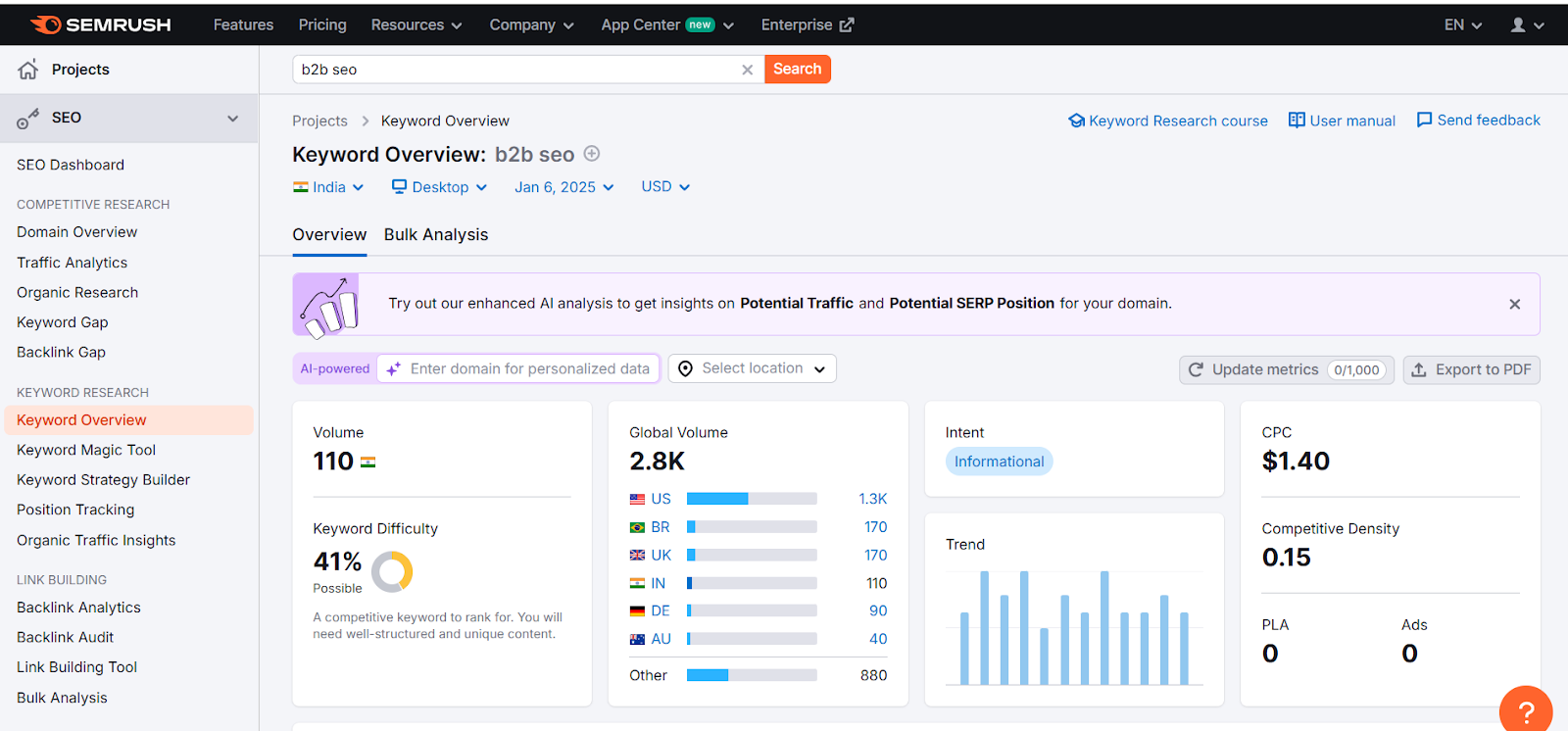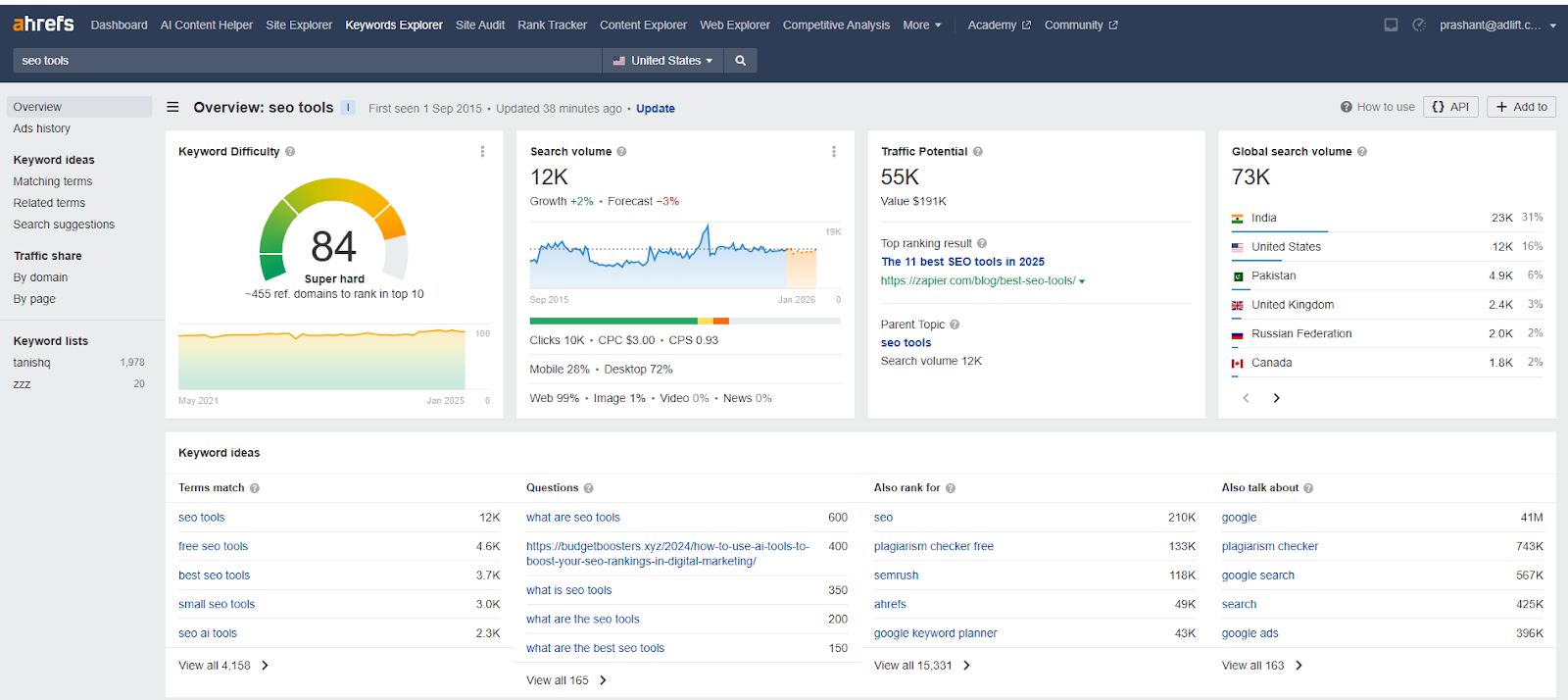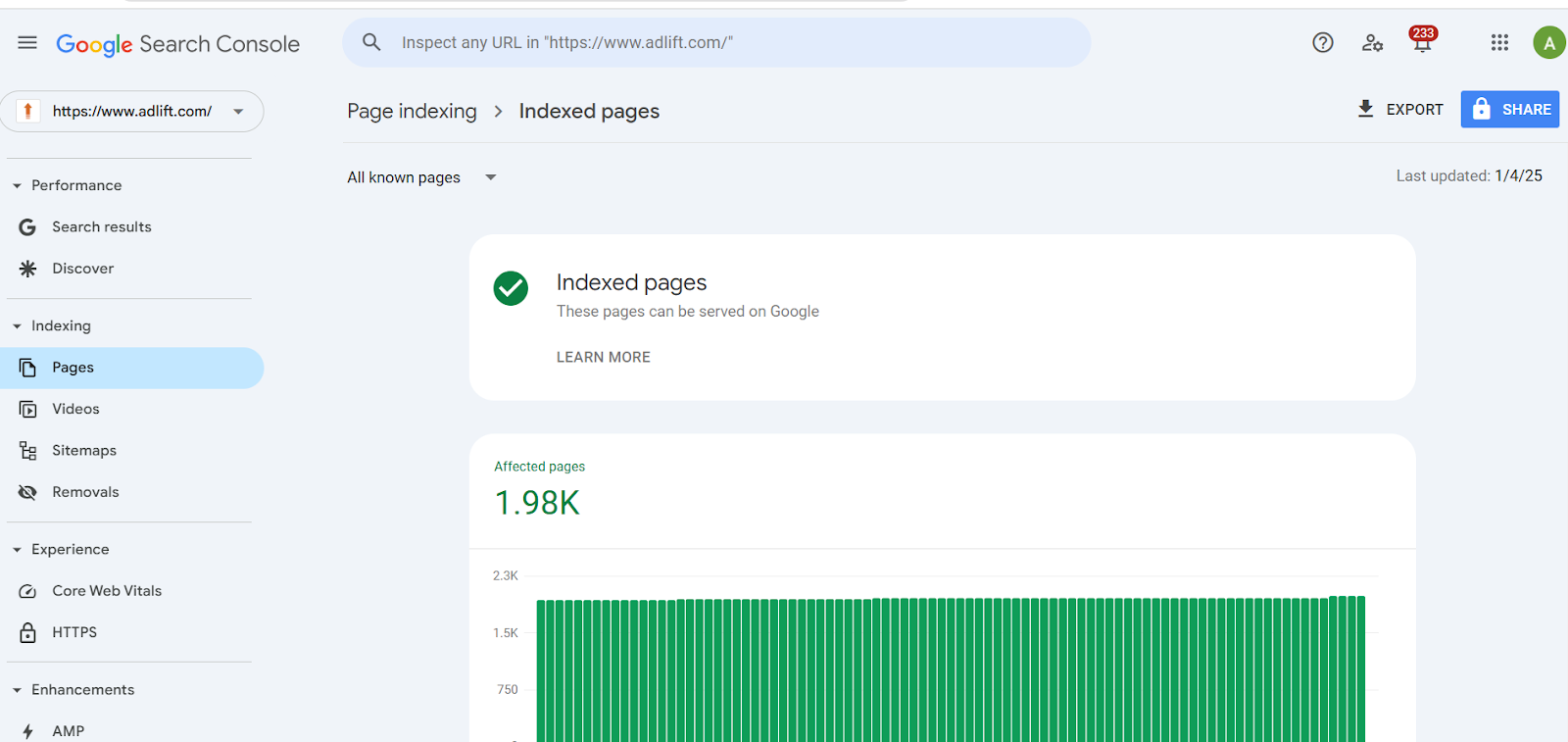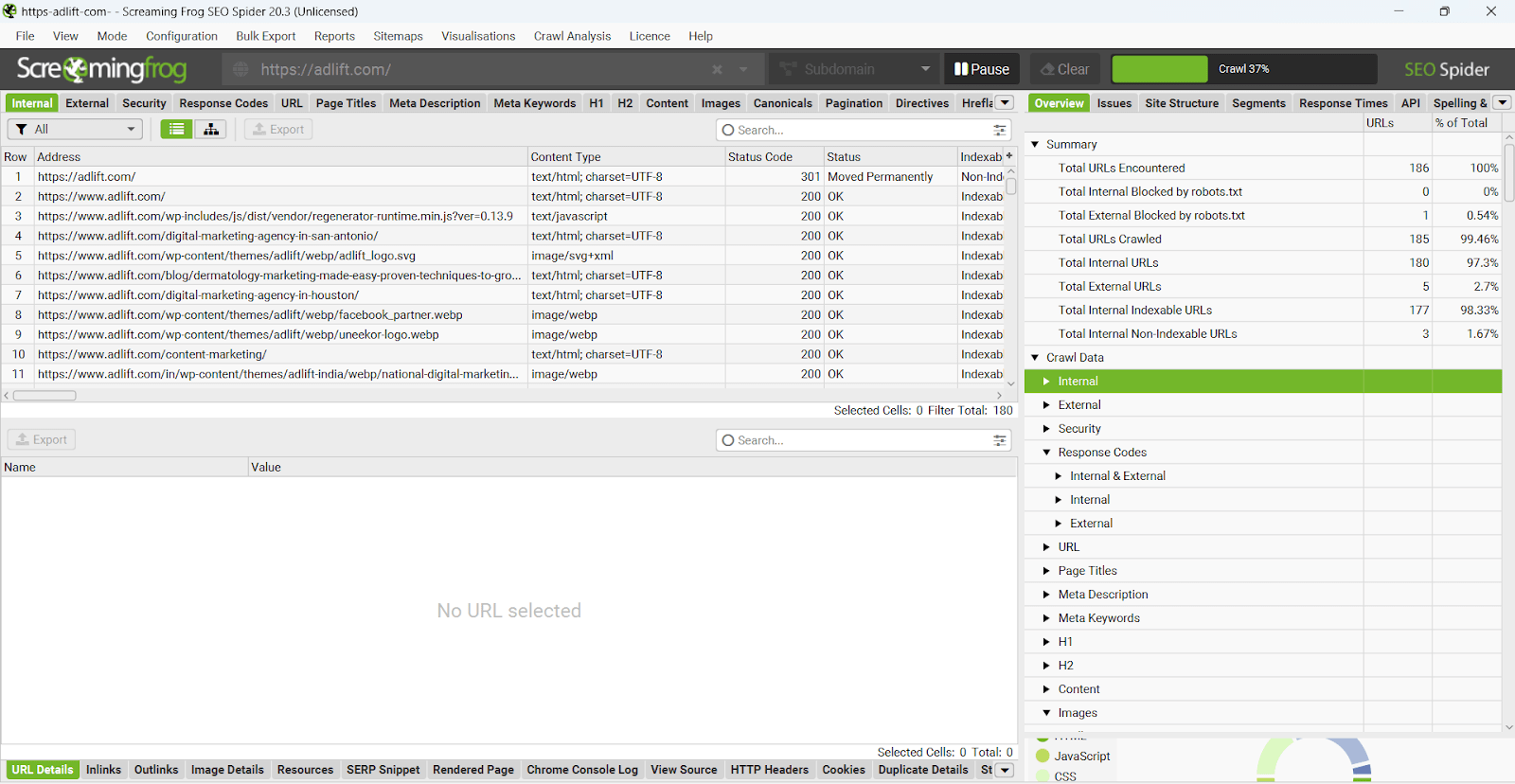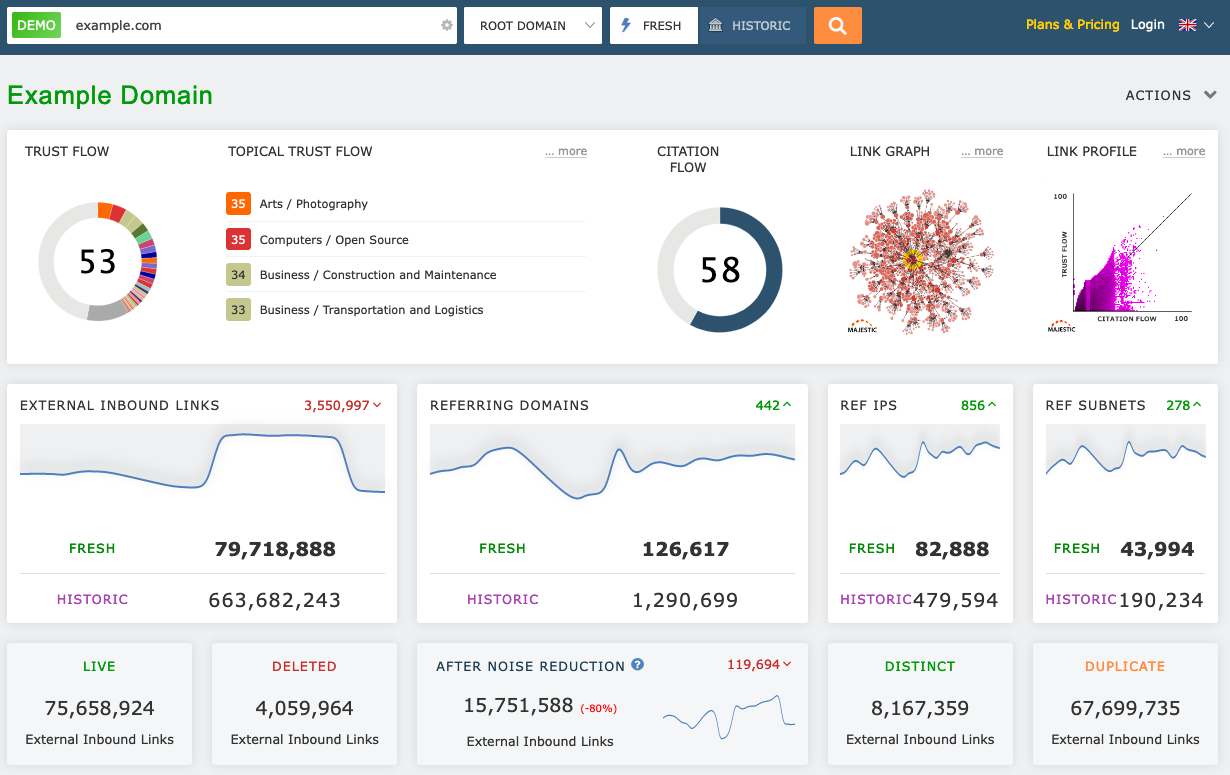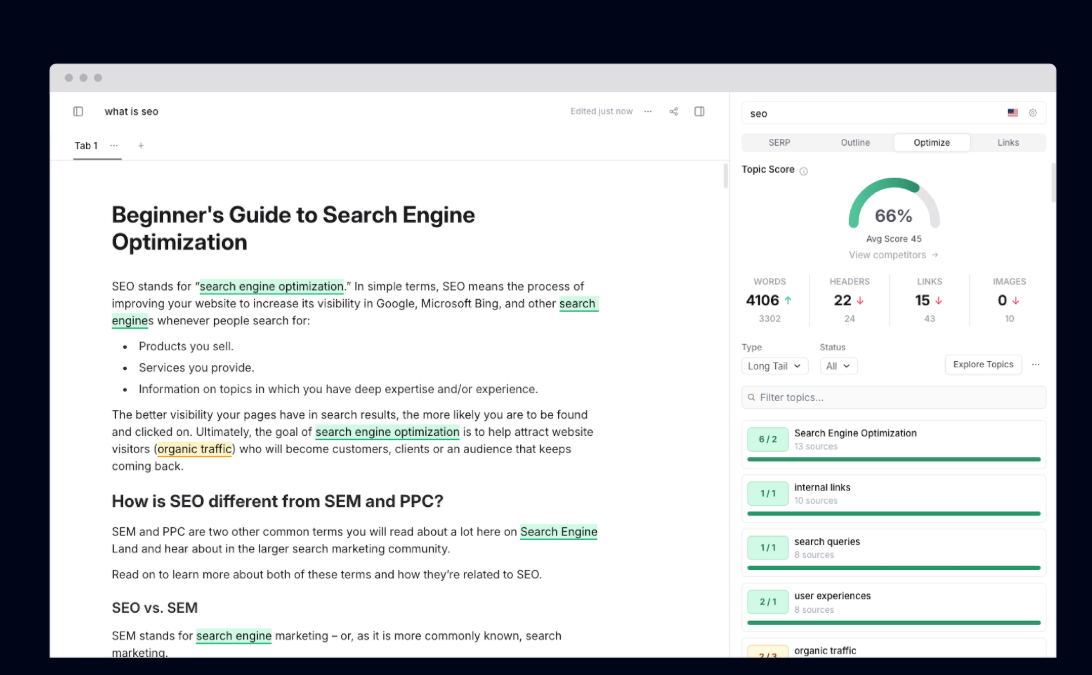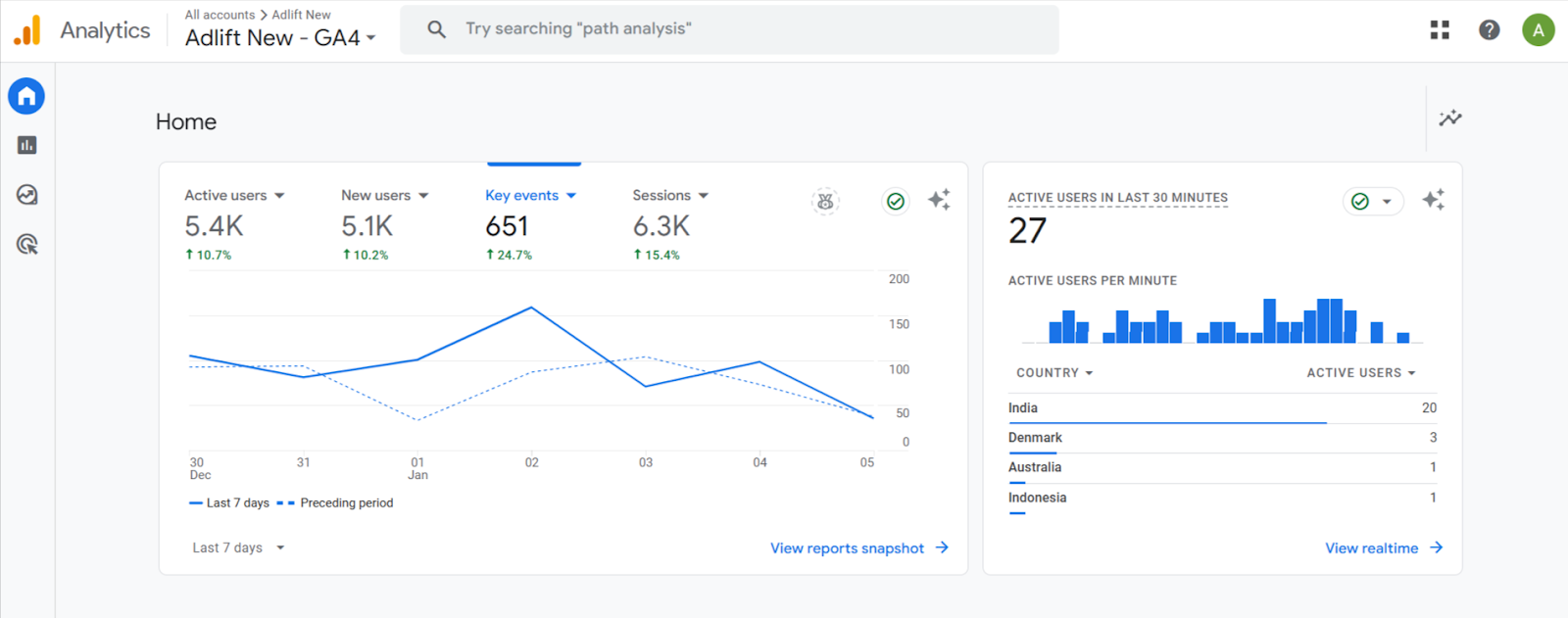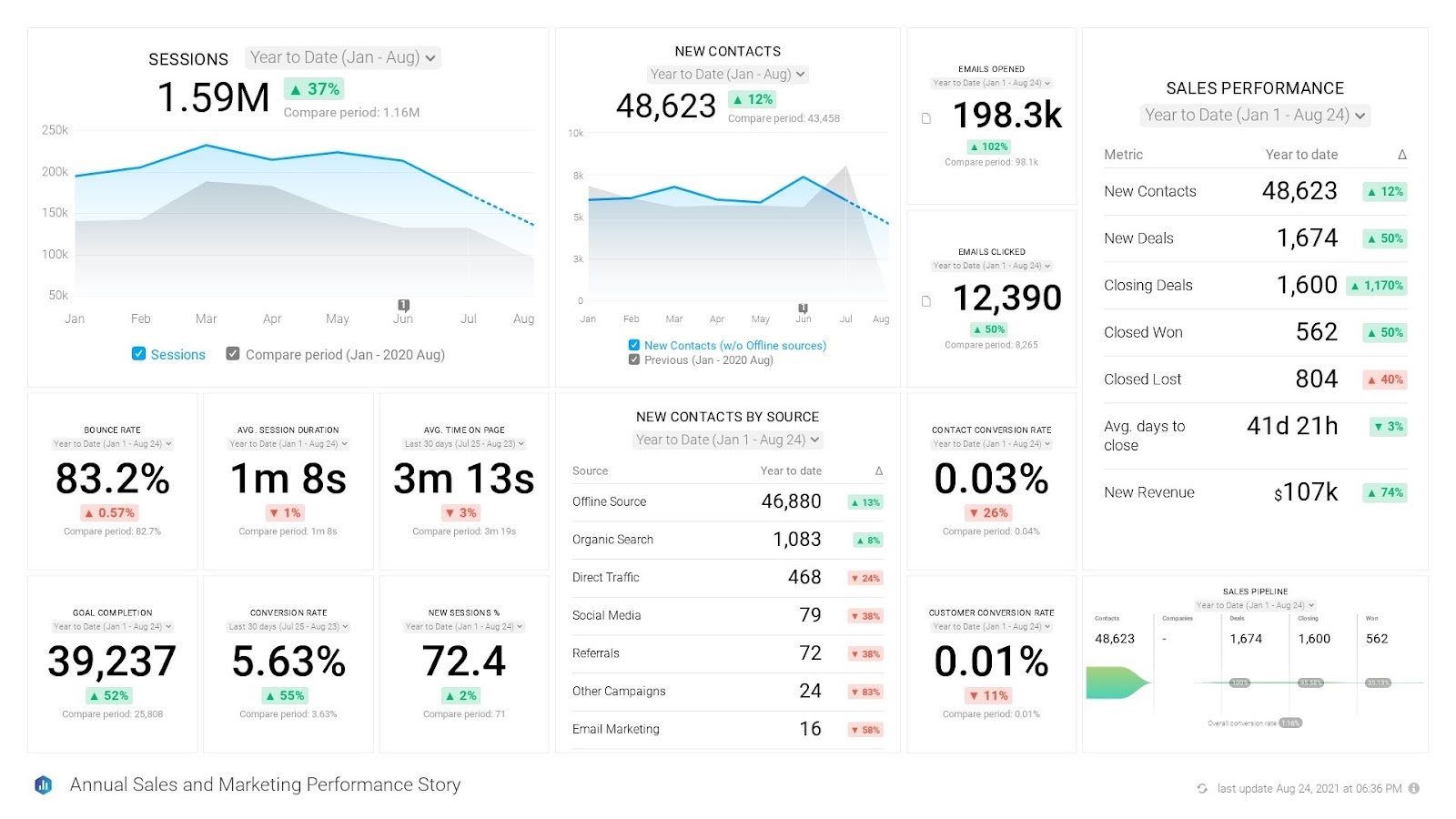Boost Your Website’s Visibility with These Must-have B2B SEO Tools

Did you know that 61% of B2B marketers say SEO and organic traffic generate more leads than any other marketing initiative? These statistics clearly depict the unmatched power of organic visibility in the B2B space. And when it comes to improving visibility, leveraging the right B2B SEO tools can make all the difference.
For B2B businesses, SEO isn’t just about ranking higher; it’s about targeting the right audience and driving meaningful interactions. In this blog, we’ll explore the importance of SEO for B2B websites, key features to look for in SEO tools for B2B, and must-have platforms that can elevate your SEO game.
Why SEO is crucial for B2B websites?
Statistics reveal that 71% of B2B buyers start their research with a generic search query. This shows that if your website doesn’t rank for relevant keywords, you’re missing out on high-intent prospects. For instance, a SaaS company targeting “best B2B tools for SEO” can attract qualified leads by optimizing for this keyword.
SEO not only improves your website’s visibility but also establishes your authority in your niche. Moreover, strong SEO strategies drive consistent, long-term traffic without the ongoing costs of paid advertising.
Challenges in B2B SEO
Unlike B2C, B2B SEO has unique challenges:
- Longer Sales Cycles: B2B decisions often require extensive research, consultations, and approval processes, meaning the impact of SEO needs to be sustained over a longer period.
- Complex Decision-making: Multiple stakeholders are typically involved in B2B purchases, making it essential to target content that appeals to various roles within an organization.
- High Competition: Ranking for niche keywords like “enterprise data management tools” can be difficult without a targeted and well-researched approach.
B2B SEO tools are designed to help various businesses overcome these challenges by providing insights into keyword intent, competitor strategies, and overall performance metrics. With the right SEO tools for B2B, you can make sure that your marketing strategies are both efficient and effective.
Key features that You Need to look for in B2B SEO tools
Choosing the right B2B SEO tools can make a significant impact on your business’s digital success. Let’s take a look at the essential features to select the best SEO platform for B2B for maximum efficiency and results.
Comprehensive Keyword Research
Finding high-intent keywords is critical for any successful SEO strategy. The best SEO tools for B2B allow you to identify keywords with the right balance of search volume, competition, and relevance. For example, targeting long-tail keywords like “enterprise cybersecurity solutions” or “cloud-based HR management systems” helps you capture a more specific audience with a higher likelihood of converting.
The best B2B tools for SEO should also offer data on keyword trends, geographic search behavior, and seasonal patterns.
Competitive Analysis
Understanding what works for competitors can offer actionable insights to refine your strategy. Top SEO platforms for B2B that provide in-depth competitor analysis can reveal keyword gaps, backlink opportunities, and top-performing content ideas. For example, analyzing a competitor’s success with keywords like “supply chain software for manufacturers” can help you design content and campaigns that outperform theirs.
Additionally, competitor analysis tools often highlight emerging trends and underserved niches, enabling you to seize opportunities before others do.
Performance Tracking
To ensure your SEO efforts yield results, you need tools that track and analyze performance metrics. This includes monitoring keyword rankings, click-through rates, bounce rates, and conversion rates for terms like “CRM solutions for small businesses” or “top ERP platforms for enterprises.”
Top SEO tools for B2B also help identify areas for improvement, such as underperforming pages or high-traffic keywords that are not driving conversions. By regularly reviewing these metrics, you can make data-driven adjustments to optimize your strategy.
Customized Reporting
For businesses, demonstrating the ROI of SEO efforts is crucial. That’s why having the best SEO platform for B2B that generates customized reports tailored to stakeholder needs is crucial. For example, presenting a report showing organic traffic growth from targeted keywords like “best accounting software for SMEs” can validate the effectiveness of your campaigns.
Advanced reporting tools also offer insights into trends, helping you refine your approach and set realistic goals. Companies that leverage reporting tools often see a 2x increase in organic traffic within a year.
Must-have B2B SEO tools and how they help
The best B2B tools for SEO can simplify complex processes and drive impactful results. Let’s take a look at some of the must-have SEO tools.
Keyword Research Tools
Let’s explore the best B2B tools for SEO that can help you uncover high-performing keywords tailored to your audience.
SEMrush
SEMrush is a comprehensive tool offering keyword gap analysis, difficulty assessment, and long-tail keyword suggestions. It also provides competitive analysis to help you stay ahead in the SEO game. For example, a B2B firm can identify high-value keywords like “cloud storage solutions for businesses” and assess their feasibility for targeting.
Ahrefs
Ahrefs excels at uncovering content gaps, monitoring competitor keyword strategies, and identifying backlink opportunities. For instance, a tech company can find keywords like “best AI tools for automation” and create content to capture search traffic for this term. Ahrefs is particularly useful for working on keywords and building an exceptional content strategy.
Technical SEO Tools
Let’s take a look at the best B2B tools for SEO that can help with technical SEO.
Google Search Console
This free tool helps detect crawl errors, indexing issues, and mobile usability problems, ensuring your website is technically optimized for search engines. For example, by fixing broken links and improving mobile responsiveness, a company targeting “enterprise cloud computing solutions” can enhance its user experience and boost rankings.
Screaming Frog
Screaming Frog crawls websites to identify duplicate content, 404 errors, missing metadata, and other issues that can hinder SEO performance. For example, a consulting firm resolved over 50 duplicate meta descriptions and saw a measurable improvement in page rankings for “business process management tools.”
Backlink Analysis Tools
Backlink analysis SEO tools help track your site’s link-building efforts and identify growth opportunities. Let’s take a look at them.
Moz Pro
Moz Pro offers detailed insights into domain authority, backlink profiles, and competitor link-building strategies. For example, by analyzing why competitors rank for “supply chain management software,” you can identify opportunities to acquire similar high-quality backlinks.
Majestic
Majestic measures link trust and citation flow, helping businesses prioritize backlinks that contribute the most to their authority. For instance, building authoritative backlinks for “enterprise data analytics services” strengthens your site’s reputation and improves rankings.
Content Optimisation Tools
Now, let’s take a look at some of the best content optimization tools.
Surfer SEO
Surfer SEO provides data-driven recommendations for content structure, keyword usage, and SERP optimization. Its analysis can help you align your content with search intent. For example, crafting a blog on “how to find the best SEO platforms for B2B” using Surfer SEO’s suggestions can lead to higher engagement and better rankings.
Frase.io
Frase.io leverages AI to create content briefs, optimize existing content, and identify opportunities for improvement. For example, enhancing a resource page for “accounting software for medium businesses” can drive more qualified traffic and improve lead generation.
Analytics and Reporting Tools
Analytics and reporting tools, considered among the best B2B tools for SEO, provide essential insights to enhance your campaigns and achieve long-term growth.
Google Analytics
Google Analytics tracks user behavior, traffic sources, and goal completions, offering a comprehensive view of your website’s performance. For example, analyzing visitor interactions with a page targeting “top ERP solutions for manufacturers” can reveal optimization opportunities.
Databox
Databox consolidates data from multiple analytics platforms into custom dashboards, making it easier to monitor key metrics. For example, generating reports that showcase increased organic traffic from specific campaigns helps justify SEO investments.
How to choose the right B2B SEO tools for your business?
Selecting the right B2B SEO tools can significantly impact your business’s online success. Here’s a guide to help you identify tools that align with your goals and maximize results.
- Define Your Goals
Start by identifying your objectives. A logistics company aiming to rank for “freight management software” will prioritize tools that excel in keyword research and performance tracking. Clear goals ensure you select tools that align with your business needs.
- Consider Your Budget
Free tools like Google Analytics are ideal for startups, while established companies may prefer premium platforms like SEMrush or Ahrefs for advanced functionalities. Assessing ROI before investing ensures you allocate resources wisely.
- Integration Capabilities
You should choose B2B SEO tools that can integrate easily with your existing systems. For example, SEMrush’s integration with CMS platforms allows for streamlined implementation, saving time and effort. - Ease of Use
Small teams benefit from intuitive tools like Moz Pro, which offer user-friendly dashboards and actionable insights. Complex tools may require training, so factor in your team’s expertise.
Real-world success story using B2B SEO tools
Razorpay partnered with AdLift to enhance its online visibility and boost market share. By implementing technical SEO, we consolidated multiple domains targeting similar keywords, ensuring cohesive rankings. Leveraging enterprise-level content marketing and on-page optimization, including product pages, FAQs, and blogs, we drove significant results.
Key achievements included a +190% Y/Y increase in non-branded keywords ranking in the Top 3, a 37% increase in organic sessions, and a 65% boost in organic traffic Y/Y. Using tools like SEMrush, Ahrefs, and Google Analytics, we helped Razorpay solidify its digital presence and attract new prospects effectively.
Measuring the ROI of your SEO tool investments
Investing in the right B2B SEO tools is essential, but ensuring a solid return on investment (ROI) is even more critical. Businesses frequently face challenges in assessing the direct effects of their SEO efforts, as results can take several months to become apparent. However, by tracking specific performance metrics and aligning them with your business goals, you can evaluate how your SEO tools are working.
Key Metrics to Monitor
To accurately measure ROI, focus on these essential metrics:
- Organic Traffic Growth: Tools like Google Analytics can help you monitor the increase in website visitors generated through organic search. For instance, a business optimizing content for “enterprise logistics management software” can track how targeted keywords drive traffic over time.
- Conversion Rates: Analyze the proportion of users who take key actions, such as registering for a demo or downloading a white paper. Tools like SEMrush allow you to attribute conversions directly to specific keywords, such as “CRM software for B2B enterprises.”
- Keyword Rankings: Monitor changes in rankings for high-value keywords. Ahrefs and Moz Pro offer keyword tracking features that provide insights into how well your content ranks for competitive search terms like “supply chain optimization tools.”
- Cost-per-acquisition (CPA): Compare the cost of acquiring leads through SEO versus paid campaigns. This metric allows you to understand the cost-effectiveness of your SEO tool investments.
From Audit to Action: Grow Smarter and Faster with SEO Tools
The right B2B SEO tools can transform your visibility, traffic, and lead generation efforts. By strategically investing in these tools, businesses can achieve measurable growth. SEO tools are not just a short-term fix. Instead, they are a long-term investment in your business’s online presence and authority. By leveraging the insights and automation these tools provide, businesses can stay ahead of competitors, enhance their marketing strategies, and deliver meaningful value to their target audiences.
You can begin by auditing your current SEO efforts and identifying gaps where these tools can help. An audit can reveal inefficiencies in your keyword strategy, content quality, or backlink profile—key areas where advanced tools can provide quick wins.
So, are you ready to take your B2B SEO to the next level? Start exploring these tools today!
